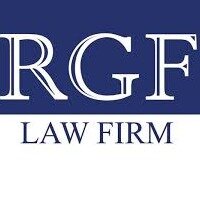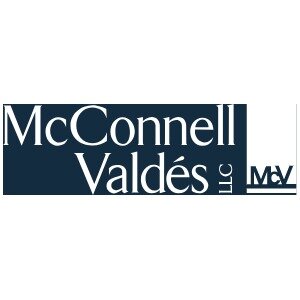Best Commercial Real Estate Lawyers in San Juan
Share your needs with us, get contacted by law firms.
Free. Takes 2 min.
Free Guide to Hiring a Real Estate Lawyer
List of the best lawyers in San Juan, Puerto Rico
About Commercial Real Estate Law in San Juan, Puerto Rico
Commercial real estate in San Juan, Puerto Rico, is a dynamic field, reflecting the city's vibrant economy and status as a hub for tourism, business, and culture in the Caribbean. This sector encompasses activities related to the buying, selling, leasing, and development of properties intended for business purposes. Given San Juan's unique position, commercial real estate laws incorporate local regulations, as well as considerations specific to the island's economic landscape. Legal advice in this area often navigates through property law, zoning regulations, environmental considerations, and taxation policies.
Why You May Need a Lawyer
In the realm of commercial real estate, transactions are often complex and require careful legal oversight to ensure compliance with local laws and protection of your interests. Common scenarios where legal assistance may be necessary include:
- Purchase or Sale of Property: Ensuring transactions are legally sound and all contractual obligations are clear and enforceable.
- Leasing Agreements: Drafting or reviewing lease contracts to protect your business interests and clarify terms.
- Zoning and Land Use: Navigating zoning laws and securing permits for development or change in land use.
- Property Development: Legal support in project financing, construction contracts, and regulatory approvals.
- Dispute Resolution: Addressing conflicts with tenants, landlords, or neighboring properties.
Local Laws Overview
In San Juan, Puerto Rico, commercial real estate is governed by a combination of local statutes and federal regulations applicable to the territory. Key aspects include:
- Zoning Laws: Extensive local regulations dictate land use, requiring compliance with zoning codes for any property development or modification.
- Property Title Regulations: Titles must be clear and unencumbered, with particular processes for verification and registration.
- Environmental Regulations: Compliance with environmental laws is crucial, especially if the property development involves coastal areas or sensitive ecosystems.
- Tax Incentives: Puerto Rico offers various incentives, such as Act 20 and Act 22, which can affect commercial real estate transactions and investments.
- Lease Agreements: Governed by civil code regulations that dictate terms and conditions for commercial leasing.
Frequently Asked Questions
What documents should I review before buying commercial property?
Evaluate the title deed, zoning regulations, environmental impact assessments, and any existing liens or encumbrances.
Do I need a permit for remodeling a commercial property?
Yes, remodeling requires permits from local building authorities, ensuring compliance with building codes and zoning laws.
How is commercial leasing different from residential leasing?
Commercial leases are generally more complex, with fewer consumer protections, longer terms, and negotiable terms tailored to business operations.
What are common zoning restrictions in San Juan?
Zoning laws may limit property use to specific commercial activities and dictate building heights, parking requirements, and signage regulations.
Can foreign investors purchase commercial real estate in Puerto Rico?
Yes, foreign investors can purchase property, though they must comply with local laws and tax obligations.
How are property taxes determined for commercial properties?
Property taxes are based on the assessed value of the property, with rates established by municipal and territorial agencies.
What is a due diligence process in commercial real estate?
Due diligence involves thoroughly investigating all aspects of the property, including legal title, environmental considerations, financial viability, and legal compliance.
Are there any tax incentives for commercial real estate investors in San Juan?
Yes, Puerto Rico offers tax incentives such as reduced corporate taxes for businesses established within the territory, impacting the commercial real estate sector.
What is the role of a real estate attorney in commercial transactions?
An attorney provides legal guidance, ensures contract compliance, negotiates terms, and resolves disputes, safeguarding client interests.
Where can I check zoning restrictions for a property in San Juan?
Zoning information is available through the Municipality of San Juan's Planning Office or the Departamento de Desarrollo Económico y Comercio (DDEC).
Additional Resources
Several resources can assist individuals or businesses navigating commercial real estate in San Juan:
- Departamento de Desarrollo Económico y Comercio (DDEC): Offers information on economic incentives and zoning regulations.
- Municipality of San Juan Planning Office: Provides guidance on local zoning, building permits, and land use plans.
- Puerto Rico Land Administration: Manages real estate transactions and land records.
- Puerto Rico Association of Realtors: Offers industry insights, networking opportunities, and professional standards in real estate.
- Real Estate Regulatory Board: Governs regulations relevant to real estate professionals and practice standards.
Next Steps
If you require legal assistance in commercial real estate in San Juan, consider the following steps:
- Consult a Local Real Estate Attorney: Engage a lawyer familiar with Puerto Rico's unique legal landscape for tailored advice.
- Research and Verify: Conduct thorough market research and verify credentials of professionals you're considering for legal and real estate transactions.
- Prepare Necessary Documentation: Gather all relevant documents such as property deeds, financial records, and identification to expedite the legal process.
- Consider Professional Associations: Connecting with local associations can provide additional guidance and recommendations for qualified legal professionals.
Lawzana helps you find the best lawyers and law firms in San Juan through a curated and pre-screened list of qualified legal professionals. Our platform offers rankings and detailed profiles of attorneys and law firms, allowing you to compare based on practice areas, including Commercial Real Estate, experience, and client feedback.
Each profile includes a description of the firm's areas of practice, client reviews, team members and partners, year of establishment, spoken languages, office locations, contact information, social media presence, and any published articles or resources. Most firms on our platform speak English and are experienced in both local and international legal matters.
Get a quote from top-rated law firms in San Juan, Puerto Rico — quickly, securely, and without unnecessary hassle.
Disclaimer:
The information provided on this page is for general informational purposes only and does not constitute legal advice. While we strive to ensure the accuracy and relevance of the content, legal information may change over time, and interpretations of the law can vary. You should always consult with a qualified legal professional for advice specific to your situation.
We disclaim all liability for actions taken or not taken based on the content of this page. If you believe any information is incorrect or outdated, please contact us, and we will review and update it where appropriate.










